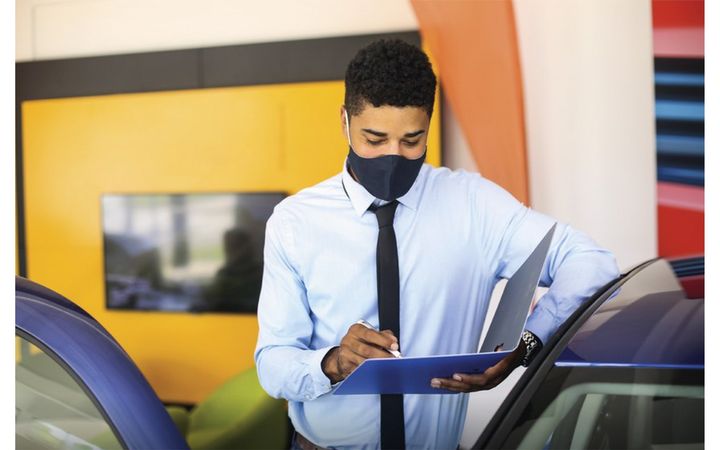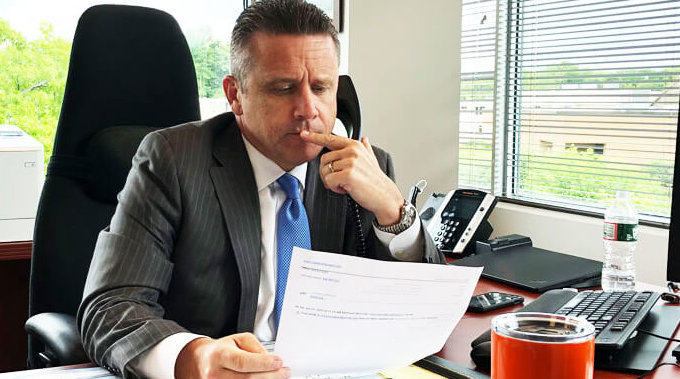It’s impossible to miss Service Manager Nestor Alvarez at Land Rover North Dade, a Miami dealership — or the fact that he offers extended-service contracts in the service lane. “We promote it pretty heavily,” he says.
That’s an understatement.
The slogan “Ask Nestor” appears on dealership banners, e-mail promotions, all over the dealership’s Web site, and on hats and buttons dealership employees wear, Alvarez says. A typical banner: “PROTECTING Your Investment with an Extended Warranty is Even SAFER than Driving a Land Rover! Ask Nestor!”
Land Rover North Dade is part of the Warren Henry Auto Group. The group has six locations with seven franchises in Florida (Fisker, Infiniti, Jaguar, Lamborghini, Land Rover, Subaru, Volvo).
The group has been promoting and selling extended-service contracts — sometimes referred to as extended warranties — to service customers for about a year. On Nov. 17, Alvarez gave a presentation in a 30-minute Webinar hosted by Automotive News, titled “Master Extended Warranty Sales.” [To view it at no charge, go to autonews.com/webinars] Special Correspondent Jim Henry interviewed Alvarez by phone on Nov. 29.
Do you offer contracts to all service customers?
We offer contracts on the service drive to everybody who would qualify … We can go up to a 7-year-old car, and up to 80,000 miles. They’re working on providing us with something a little bit longer.
Who’s “they?” Do you have a particular supplier, or do you sell a lot of different contracts?
We use Vanguard Dealer Services. We only sell EasyCare service contracts. That is one part of the business. We also sell KeyCare [key replacement policies], dent repair, tire and road hazard.
So service contracts aren’t the only F&I products you sell in the service department.
It’s not just service contracts. We try to sell road-hazard [policies], for example, but that’s not so much. The other big thing we sell here is key replacement. Without it, it can cost $500 to get a key replacement for a Mercedes. It’s $150 for the policies, and you can use it as many times as you need. You can also get a package where you can get a house key and everything. We also do very well with dent policies.
Do customers accept the idea of being pitched these products in the service lane rather than the sales department?
The actual effect is bigger if you take F&I to the service drive. If you’re at a dealership that sells 20, or 30, or 100 cars a month, that’s all the people you see in a month. We [in the service department] see that many in a day.
How do service writers get paid for F&I sales?
One of the problems [in other dealership groups] is that dealers, general managers — when you have one — try not to reward the people who sell it. We reward whoever sells it, whether it’s a sales person or a cashier. They get $100. The profit is $1,000 even, so we keep the $900. If they sell enough, they can also qualify for prizes. Some [service] advisers pick up an extra $1,500 per month. We’ve probably tripled our extended warranty sales.
What do the people in the new-car and used-car departments think about this? Aren’t you competing with them?
The competition is minimal. They’re focusing on the cars they’re selling that day. If a dealership sells 50 used cars in a month, that’s 50 chances they have to sell a contract. We have 40 customers a day. The sales department doesn’t have that kind of traffic. I don’t think it’s business that they would be getting anyway. There’s not a real hard competition with sales.
Is the whole Warren Henry group doing this, or just your market?
It’s everybody. The profits are nice, of course, but the big thing is for retaining people. For retaining people, it’s a great tool.
When you say retaining people, you mean retaining service customers, right? J.D. Power says people quit going to the dealer for service after their original warranty expires.
That’s right. Especially at the high end, you see more people hanging on to their cars longer. We always ask how long the customer plans to keep their car. If it’s at least three years, they’ll probably get their money back.





